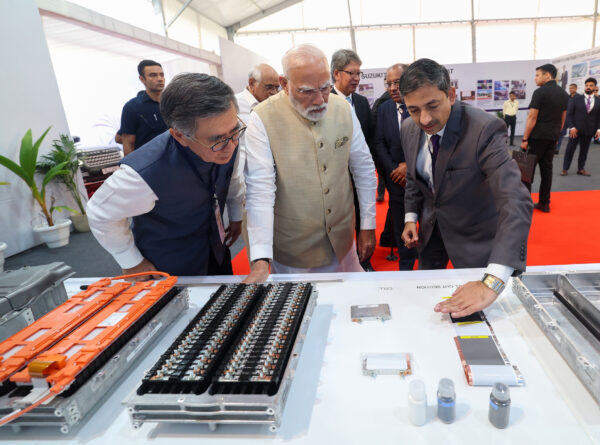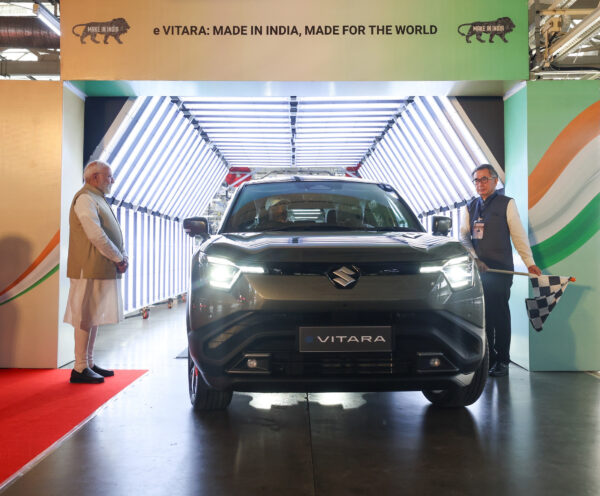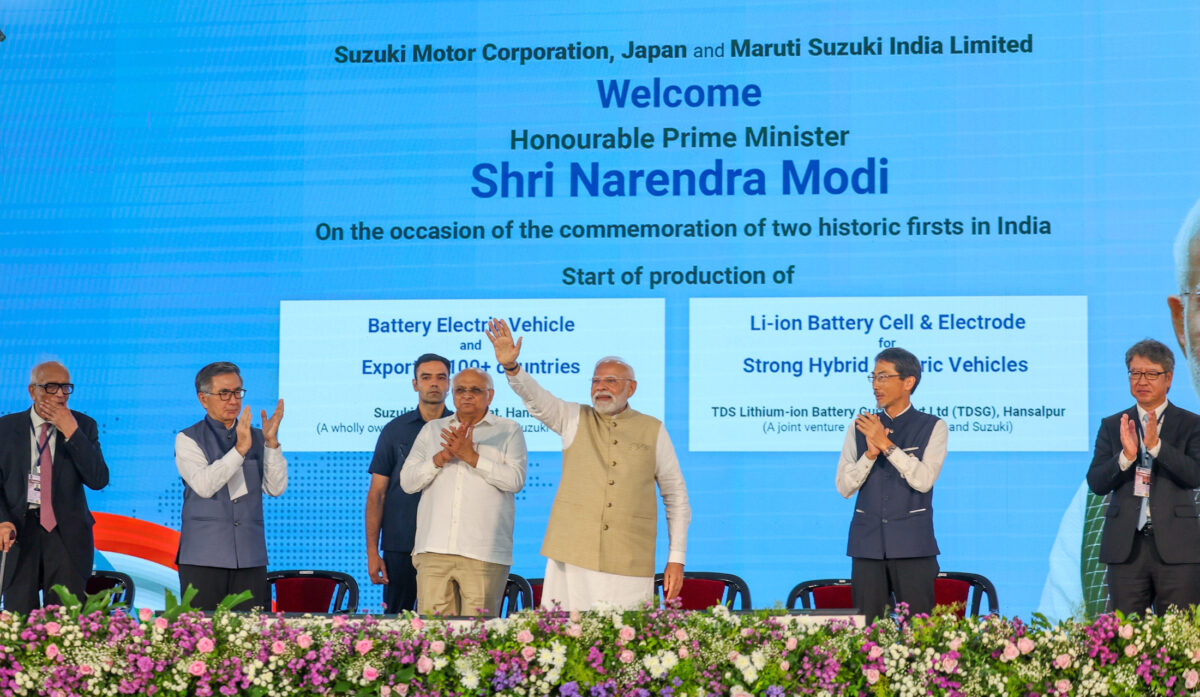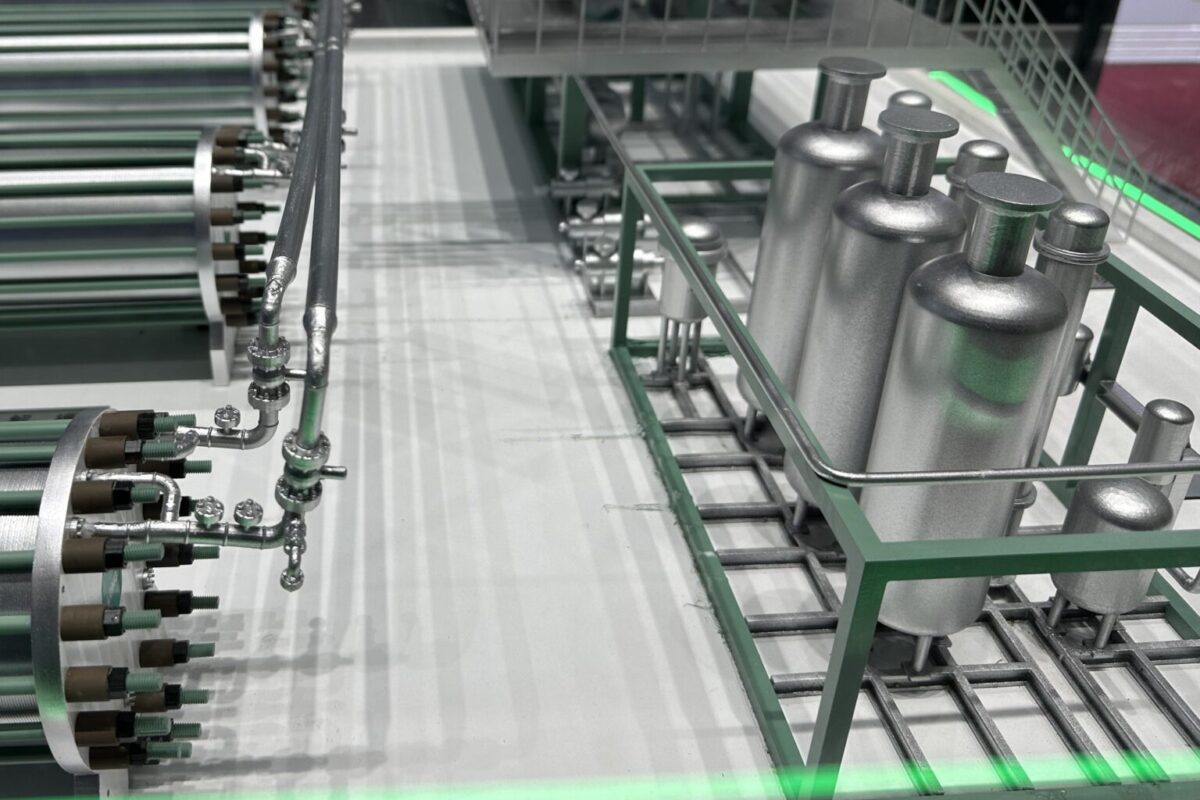Prime Minister Narendra Modi inaugurated the next phase of India’s battery ecosystem with the start of local production of hybrid battery electrodes at TDS Lithium-Ion Battery Gujarat Pvt Ltd (TDSG), Maruti Suzuki’s fellow subsidiary.
TDSG is India’s first lithium-ion battery manufacturing facility with cell-level localisation. It is a collaboration between Toshiba, Denso and Suzuki – three of the biggest names in the global automotive industry. Electrode production at the local level ensures that more than 80% of the battery value will now be manufactured within India.The lithium-ion batteries produced at the plant will be used in Maruti Suzuki’s strong hybrid electric vehicles.

Image: PIB, Govt of India
The prime minister said that to strengthen EV manufacturing, it was essential for India to begin domestic battery production. He recalled that in 2017, the foundation of the TDSG battery plant was laid with this vision. Under the initiative by TDSG, three Japanese companies (Toshiba, Denso and Suzuki) will jointly manufacture battery cells in India for the first time. He added that battery cell electrodes will also be produced locally within India.
Prime Minister Modi also inaugurated and flagged off the ‘e VITARA,’ Suzuki’s first global strategic battery electric vehicle (BEV). The Made-in-India BEVs will be exported to more than one hundred countries, including advanced markets such as Europe and Japan. With this milestone, India will now serve as Suzuki’s global manufacturing hub for electric vehicles.

PIB, Govt of India
This content is protected by copyright and may not be reused. If you want to cooperate with us and would like to reuse some of our content, please contact: editors@pv-magazine.com.









1 comment
By submitting this form you agree to pv magazine using your data for the purposes of publishing your comment.
Your personal data will only be disclosed or otherwise transmitted to third parties for the purposes of spam filtering or if this is necessary for technical maintenance of the website. Any other transfer to third parties will not take place unless this is justified on the basis of applicable data protection regulations or if pv magazine is legally obliged to do so.
You may revoke this consent at any time with effect for the future, in which case your personal data will be deleted immediately. Otherwise, your data will be deleted if pv magazine has processed your request or the purpose of data storage is fulfilled.
Further information on data privacy can be found in our Data Protection Policy.